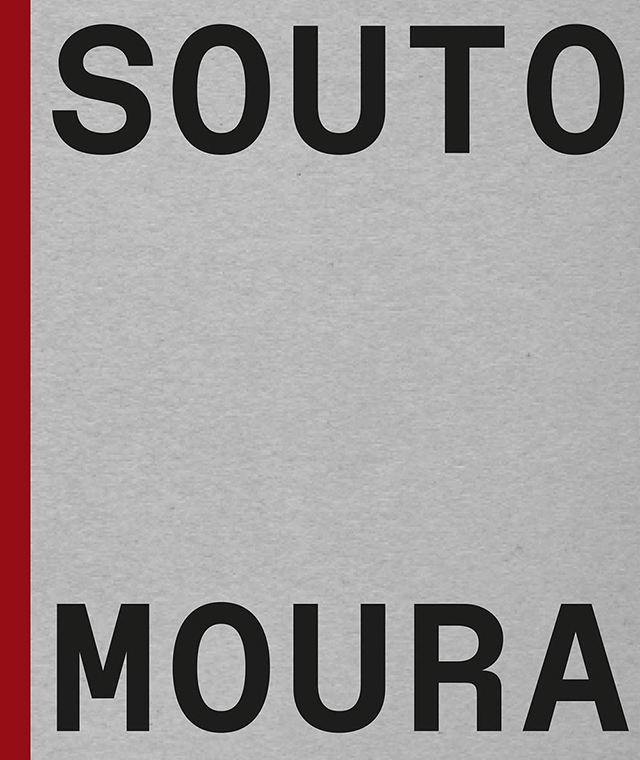Souto de Moura
Souto de Moura: Memory, Projects, WorksFrancesco Dal Co and Nuno Graça MouraCasa da Arquitectura/Yale University Press, February 2020Hardcover | 8 x 10 inches | 432 pages | 800 illustrations | English | ISBN: 9780300248654 | $55.00PUBLISHER'S DESCRIPTION: The architect Eduardo Souto de Moura (b. 1952) has won many accolades, including the 2011 Pritzker Architecture Prize. Based in Porto, Souto de Moura studied under Fernando Távora and worked under fellow Portuguese architect Álvaro Siza, with whom he continues to collaborate. Souto de Moura established his own practice in 1980, and his wide-ranging influences, including Mies van der Rohe and Donald Judd, can be seen in the stunning variety of his work, from his acclaimed private houses, to the striking Paula Rego Museum in Cascais and the Braga Municipal Stadium, to his work in historical contexts such as the Convento das Bernardas in Tavira. This beautifully illustrated retrospective provides the most comprehensive account of Souto de Moura’s career to date. Drawings, notes and sketches from his archive, and newly commissioned photographs complement essays by scholars and prominent architects that trace Souto de Moura’s career, contextualize his work within the larger trends of contemporary international architectural culture, and highlight the originality of his design strategy. Francesco Dal Co is professor emeritus of architecture at IUAV, Venice, and editor of Casabella. Nuno Graça Moura is an architect and former collaborator of Souto de Moura. REFERRAL LINKS: dDAB COMMENTARY: Like many exhibitions that were on display when the coronavirus pandemic started spreading around the world in early 2020, the run of Souto de Moura: Memory, Projects, Works at Casa da Arquitectura in Matosinhos, Portugal, was interrupted. With museums now reopening at smaller capacities and with requirements for masks and social distancing, the exhibition on Eduardo Souto de Moura, one of Portugal's two Pritzker Prize-winning architects, is getting a second wind: an extension of its closing date from September 6, 2020, until March 7, 2021. This is good news for people in Europe but just so-so news for someone like me, who lives in the United States and is currently unable to travel to Portugal or anywhere else in Europe. Thankfully, the book accompanying the show curated by Francesco Dal Co and Nuno Graça Moura is an excellent — and highly recommended — documentation of forty years of Souto de Moura's architecture. As is expected with any monograph or companion to a monographic exhibition, Memory, Projects, Works comes with numerous texts about the architect, here positioned before and after the presentation of nearly forty built, unbuilt, and in-progress projects. The essays are variable in terms of readability (part of this I chalk up to the translation), but more than one author situates Souto de Moura within the lineage of fellow Portuguese architects Fernando Távora and Álvaro Siza. Familiarity with their careers helps in fully understanding what some of the texts have to say about Souto de Moura, but I'm inclined to recommend the book solely on the projects, which are described in few words by the architect but are accompanied by lots of drawings and photographs. It's a treat for architects. The first building in the book's chronological presentation of buildings and projects is the Ruin Refurbishment in Gerês (spreads below), which embodies some of the best qualities of the book. Souto de Moura gives just seven lines in describing the building, two of them a quote, in French, from Apollinaire; opposite the words is an intriguing photo of the house taken in 2015, 33 years after it was completed. What follows are "before" photos from 1980, preliminary sketches scanned from sketchbooks, hardline drawings, photos of the house in 1984, and more photos of the building in 2015. The last reveal that the ruin-turned-house is a ruin once again, although the link above contends the house was never finished. Whatever the case, the ten pages devoted to the project say all that needs to be said, more in images than words. The rest of the hefty book — coincidentally, roughly the same size as the first edition of Francesco Dal Co's Frank O. Gehry: The Complete Works — is pretty much the same: page after page of thorough visual documentation of one remarkable project after another. Nuno Graça Moura — exhibition co-curator, book co-author, and a former collaborator with Souto de Moura — writes in his foreword that the exhibition and book are "the result of opening the architect's vast collection to the public." Diving into the buildings and projects is very much like digging through the architect's archives: intimately seeing each design unfold through sketches, drawings, and photographs. If you are a fan of Souto de Moura, this book is a must — and a bargain, relative to other monographs at least, with its $55 cover price. SPREADS:

Casa da Arquitectura/Yale University Press, February 2020
Hardcover | 8 x 10 inches | 432 pages | 800 illustrations | English | ISBN: 9780300248654 | $55.00
PUBLISHER'S DESCRIPTION:
REFERRAL LINKS:
SPREADS:











